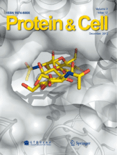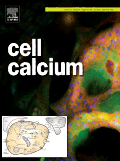
JOURNAL OF CELL SCIENCE
Scope & Guideline
Pioneering discoveries in the realm of cell science.
Introduction
Aims and Scopes
- Cellular Mechanisms and Signaling:
The journal emphasizes studies exploring the fundamental cellular mechanisms, such as signaling pathways, cytoskeletal dynamics, and intracellular transport, which are crucial for maintaining cellular function and responding to environmental changes. - Cellular Structure and Dynamics:
Research on the structural aspects of cells, including organelle organization, cytoskeletal architecture, and membrane dynamics, is a core focus, contributing to a deeper understanding of how cellular structures support their functions. - Development and Differentiation:
The journal covers studies on cell differentiation, development, and the roles of various cell types in multicellular organisms, providing insights into developmental biology and regenerative medicine. - Cell Interactions and Microenvironment:
Papers exploring cell-cell interactions, tissue mechanics, and the influence of the extracellular matrix on cellular behavior are prominent, highlighting the importance of the cellular microenvironment. - Disease Mechanisms and Therapeutics:
The journal also addresses the role of cellular processes in disease, particularly cancer and neurodegenerative disorders, and explores potential therapeutic interventions.
Trending and Emerging
- Mechanobiology and Cellular Mechanics:
There is an increasing focus on the role of mechanical forces in cell behavior, emphasizing how physical properties of the cellular environment influence processes such as migration, differentiation, and tissue development. - Cellular Responses to Stress and Damage:
Research exploring how cells respond to various stressors, including oxidative stress and damage, has gained traction, highlighting the importance of cellular resilience and repair mechanisms. - Intercellular Communication and Extracellular Vesicles:
Studies on the mechanisms of intercellular communication, particularly through extracellular vesicles, are on the rise, reflecting an interest in how cells communicate and influence each other's behavior. - Integration of AI and Computational Biology:
The integration of artificial intelligence and computational methods in analyzing biological data, including imaging and omics data, is a growing trend, enhancing the understanding of complex cellular processes. - Therapeutic Targeting of Cellular Pathways:
An emphasis on identifying and targeting specific cellular pathways for therapeutic purposes, particularly in cancer and metabolic diseases, is emerging as a significant theme in recent publications.
Declining or Waning
- Classical Cell Biology Techniques:
There has been a noticeable decrease in papers focusing solely on classical cell biology techniques, such as basic microscopy and standard biochemical assays, as researchers increasingly adopt more advanced imaging and molecular techniques. - Single-Cell Studies:
The volume of research centered on single-cell analyses has waned, possibly overshadowed by the rise of high-throughput technologies that analyze cell populations rather than individual cells. - Basic Mechanistic Studies:
Papers that focus primarily on basic mechanistic studies without clear applications or implications for broader biological contexts have become less common, as there is a growing emphasis on translational research.
Similar Journals

Protein & Cell
Advancing Knowledge in Biochemistry and Cell BiologyProtein & Cell, published by Oxford University Press, is a distinguished international journal focusing on cutting-edge research in the fields of biochemistry, biotechnology, cell biology, and drug discovery. This open access journal, active since 2014, is dedicated to disseminating innovative findings that advance our understanding of protein functions and cellular processes, making it an essential resource for researchers, professionals, and students alike. With an impressive 2023 impact factor reflected in its Q1 ranking across multiple categories such as Biochemistry, Drug Discovery, and Cell Biology, 'Protein & Cell' stands at the forefront of scientific research, driving collaboration and discussion in the scientific community. Researchers can access the journal freely online, fostering a global exchange of knowledge and contributing to significant advancements in medicine and biotechnology. Located in the United Kingdom, the journal strives to be a pivotal platform for impactful research that influences future studies and applications.

CELL AND TISSUE RESEARCH
Connecting Researchers to Cutting-edge Findings in Cell BiologyCELL AND TISSUE RESEARCH, published by Springer, is a premier journal dedicated to advancing the field of cell biology, histology, pathology, and forensic medicine. With a proud history dating back to its foundation in 1924 and continuing its legacy, this journal has established itself as a vital source for innovative research, facilitating the dissemination of significant findings that contribute to the understanding of cellular and tissue dynamics. Hailing from Germany, the journal exhibits an impressive standing in the academic community with a 2023 impact factor reflected in its category quartiles: Q2 in Cell Biology, Q1 in Histology, and Q1 in Pathology and Forensic Medicine. It ranks notably within multiple Scopus categories, including 32/208 in Pathology and Forensic Medicine and 13/62 in Histology, showcasing its high percentile rankings of 84th and 79th, respectively. Researchers, professionals, and students benefit from its extensive coverage and rigorous peer-review process that ensures the integrity and relevance of its published works, thus making it an essential resource in the scientific community. While it operates under a subscription model, its commitment to quality and impact makes it an indispensable journal for anyone engaged in cellular and tissue research.

Frontiers in Cell and Developmental Biology
Unlocking the mysteries of life at the cellular level.Frontiers in Cell and Developmental Biology is a leading open-access journal published by FRONTIERS MEDIA SA, dedicated to advancing the understanding of fundamental biological processes at the cellular and developmental levels. Since its inception in 2013, the journal has positioned itself as a cornerstone of research in its field, achieving esteemed Q1 quartile rankings in both Cell Biology and Developmental Biology for 2023. With a robust Scopus ranking of #13 out of 82 in Developmental Biology and #67 out of 285 in Cell Biology, it represents a vital platform for innovative research and scholarly discourse. The journal provides a comprehensive and accessible avenue for researchers, professionals, and students alike to share high-quality findings and insights into cellular mechanisms and developmental processes, fostering collaboration and knowledge exchange in the global scientific community. Based in Lausanne, Switzerland, Frontiers in Cell and Developmental Biology is committed to open science, ensuring that all articles are freely accessible to the public, thereby broadening the impact of research in the biological sciences.

BIOLOGY OF THE CELL
Fostering dialogue in the dynamic field of cell biology.BIOLOGY OF THE CELL is a prominent academic journal published by Wiley, dedicated to advancing the field of cellular biology through the dissemination of innovative research and insights. With its ISSN (0248-4900) and E-ISSN (1768-322X), this journal has been a vital resource since its inception in 1981 and is set to continue its scholarly contributions until 2024. Positioned within the Q3 quartile in Cell Biology and Q2 in Medicine (miscellaneous) as of 2023, BIOLOGY OF THE CELL is recognized for its rigorous peer-review process and its commitment to high-quality publication in critical areas such as biochemistry, genetics, and molecular biology. Although the journal does not currently offer open access options, it remains accessible through the Wiley platform, ensuring that researchers, professionals, and students can benefit from its rich repository of knowledge. By linking fundamental cellular processes with broader medical implications, this journal serves as a critical platform for fostering dialogue and innovation in cellular research, making it an essential read for anyone engaged in the life sciences.

DNA AND CELL BIOLOGY
Fostering Innovation in Biological ResearchDNA AND CELL BIOLOGY, published by Mary Ann Liebert, Inc, is a distinguished journal in the realms of cell biology, genetics, and molecular biology, holding a notable position in its Q3 and Q2 quartile rankings across multiple academic categories as of 2023. With an ISSN of 1044-5498 and an E-ISSN of 1557-7430, this journal has been a pivotal platform for the dissemination of cutting-edge research since its inception in 1990, extending its coverage through 2024. Situated in the United States, the journal offers high-quality peer-reviewed articles, exploring significant advancements in biological sciences while fostering interdisciplinary collaborations within the research community. Though it currently does not offer open access, subscribed institutions and individual readers benefit from its rich repository of knowledge. The journal's rigorous standards and impactful content make it an essential resource for researchers, professionals, and students alike, aiming to stay at the forefront of discoveries influencing DNA and cellular dynamics.

JOURNAL OF CELLULAR PHYSIOLOGY
Fostering Excellence in Cellular Research and InnovationJOURNAL OF CELLULAR PHYSIOLOGY, published by Wiley, is a leading peer-reviewed journal that has been at the forefront of cellular research since its inception in 1945. With its prestigious Q1 and Q2 rankings in the fields of Clinical Biochemistry and Cell Biology, this journal is highly regarded within the scientific community, reflecting its significant impact factor and rigorous peer-review process. Addressing the intricacies of cell function and physiology, it serves as a crucial resource for researchers, professionals, and students dedicated to advancing knowledge in the life sciences. The journal publishes cutting-edge research articles, integral reviews, and significant findings that bridge basic biology and clinical applications, ensuring access to high-quality scholarly content that informs current practices and future research directions. Although not open access, the journal maintains a rich archive of studies, making it an essential reference point for those invested in the health and biological sciences.

MOLECULAR AND CELLULAR BIOLOGY
Pioneering Research in Cell Biology ExcellenceMOLECULAR AND CELLULAR BIOLOGY, published by TAYLOR & FRANCIS INC, stands as a preeminent platform for researchers, professionals, and students engaged in the dynamic field of molecular and cellular biology. Established in 1981 and ongoing into 2024, the journal features cutting-edge research that spans across vital sub-disciplines, garnering a strong impact in its contributions to the scientific community. With an impressive Q2 ranking in Cell Biology and Q1 ranking in Molecular Biology for 2023, it consistently publishes high-quality articles that reflect the latest advancements and discoveries within the field. The journal is particularly well-regarded for its rigorous peer-review process and commitment to scientific excellence, making it an invaluable resource for those seeking to deepen their understanding of molecular mechanisms and cellular processes. Although not open access, the journal offers diverse access options for researchers to reach the latest findings. By maintaining a strong focus on biochemistry, genetics, and molecular biology, MOLECULAR AND CELLULAR BIOLOGY remains essential reading for anyone looking to contribute to or stay informed about significant developments within this pivotal area of study.

TRENDS IN CELL BIOLOGY
Transforming Understanding of Cellular ComplexityTRENDS IN CELL BIOLOGY, published by CELL PRESS, is a premier journal in the field of cell biology, recognized for its high-impact contributions since its inception in 1991. As a distinguished member of the Q1 quartile within its category, the journal holds an impressive Scopus ranking of #8 out of 285, placing it in the 97th percentile of the field, which underscores its reputation for excellence. The journal serves as an essential resource for researchers, professionals, and students who are engaged with groundbreaking advancements in biochemistry, genetics, and molecular biology. Although it is not open access, it provides critical insights into the latest trends, reviews, and advancements in cell biology, making it a crucial tool for anyone committed to understanding the complexities of cellular systems. With a focus on innovative and transformative research, TRENDS IN CELL BIOLOGY continues to shape the discourse in cell biology and enhance the scientific community's knowledge.

CELL CALCIUM
Elevating Understanding of Cellular Calcium RolesCELL CALCIUM is a premier journal published by ELSEVIER SCI LTD, focusing on the critical role of calcium in cellular processes, making it an essential read for researchers and professionals in the fields of Cell Biology, Molecular Biology, and Physiology. Having been in publication since 1980, this journal is well-regarded, holding a Q2 ranking in Cell Biology and Molecular Biology, as well as a prestigious Q1 status in Physiology for 2023. With an impressive Scopus ranking that places it in the top 20% of journals in its categories, CELL CALCIUM aims to disseminate original research articles that advance the understanding of calcium signaling mechanisms and their implications in health and disease. Although not available via open access, its insights are critical for advancing knowledge and fostering collaboration within the scientific community. The journal is located in the United Kingdom, with its editorial excellence helping to promote high-impact research that continues to influence both academia and industry.

Cell Reports
Unlocking Innovations in Biochemistry and GeneticsCell Reports is a prestigious open-access journal published by CELL PRESS that has firmly established itself as a leading voice in the fields of Biochemistry, Genetics, and Molecular Biology. Since its inception in 2012, the journal has provided an innovative platform for rapid dissemination of cutting-edge research, ensuring that high-quality findings are accessible to a global audience. With an impressive impact factor and ranking within the top 10% in its category, as reflected by its Q1 ranking in Scopus, Cell Reports serves a vital role in advancing scientific knowledge and fostering collaboration among researchers. The journal's commitment to the open-access model not only enhances visibility but also encourages the sharing of critical advancements in molecular biology. Situated in the Netherlands, its contributions are recognized worldwide, making Cell Reports an indispensable resource for scientists aiming to stay at the forefront of their fields and facilitate breakthroughs that may shape the future of biomedicine.